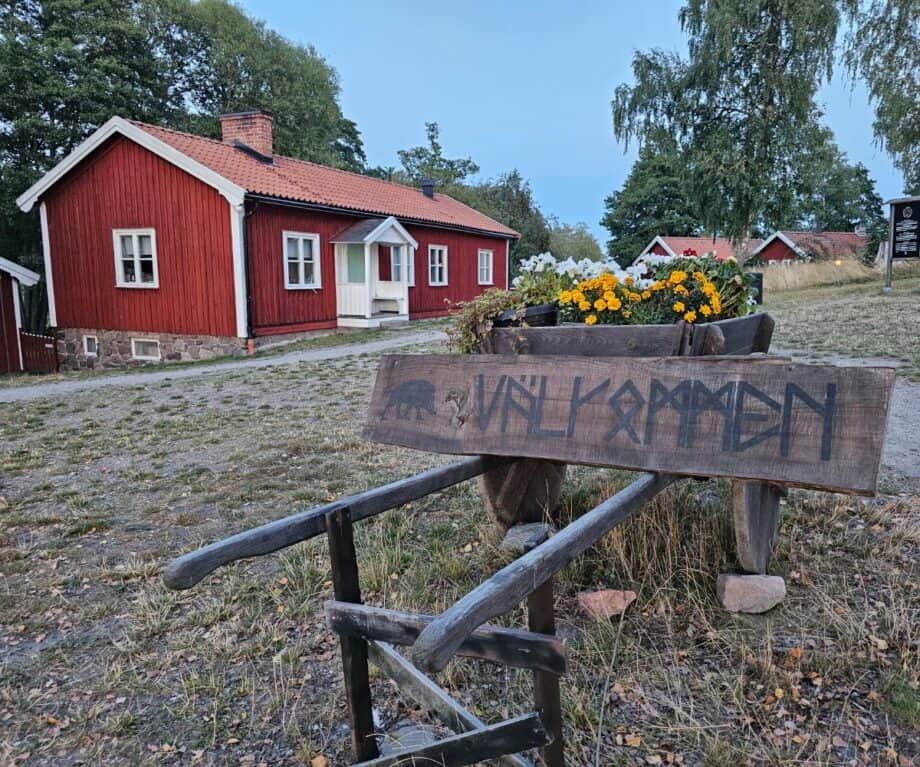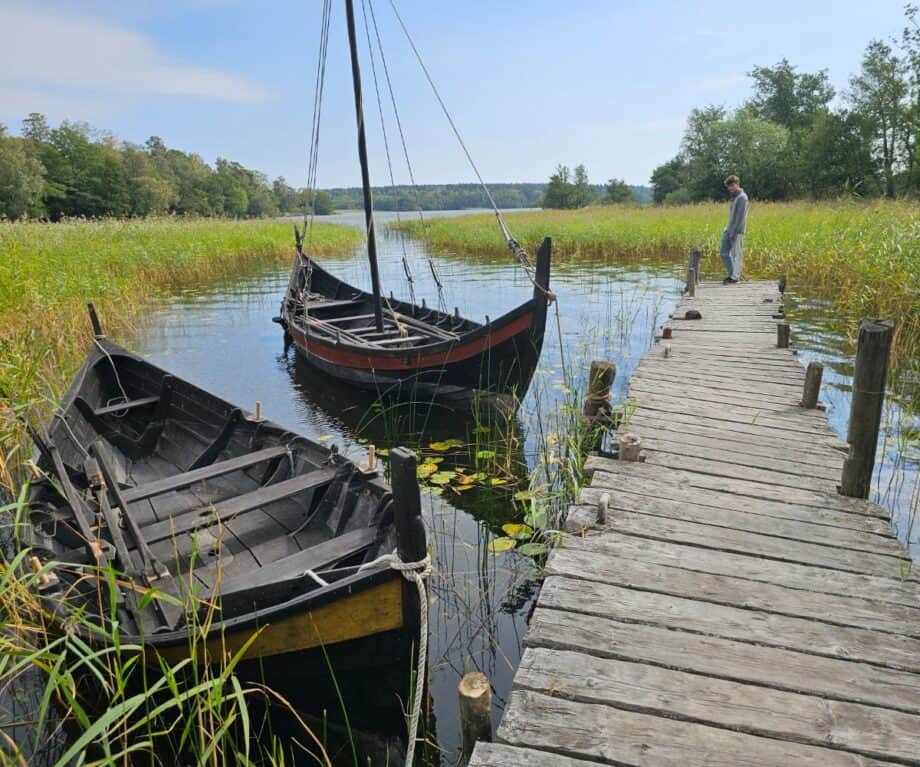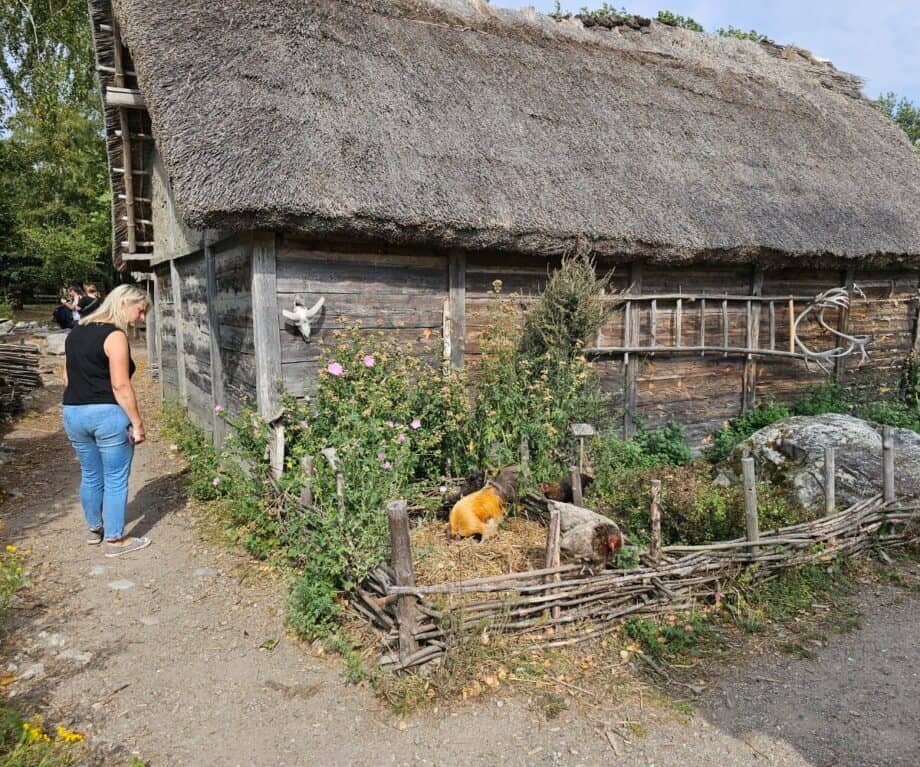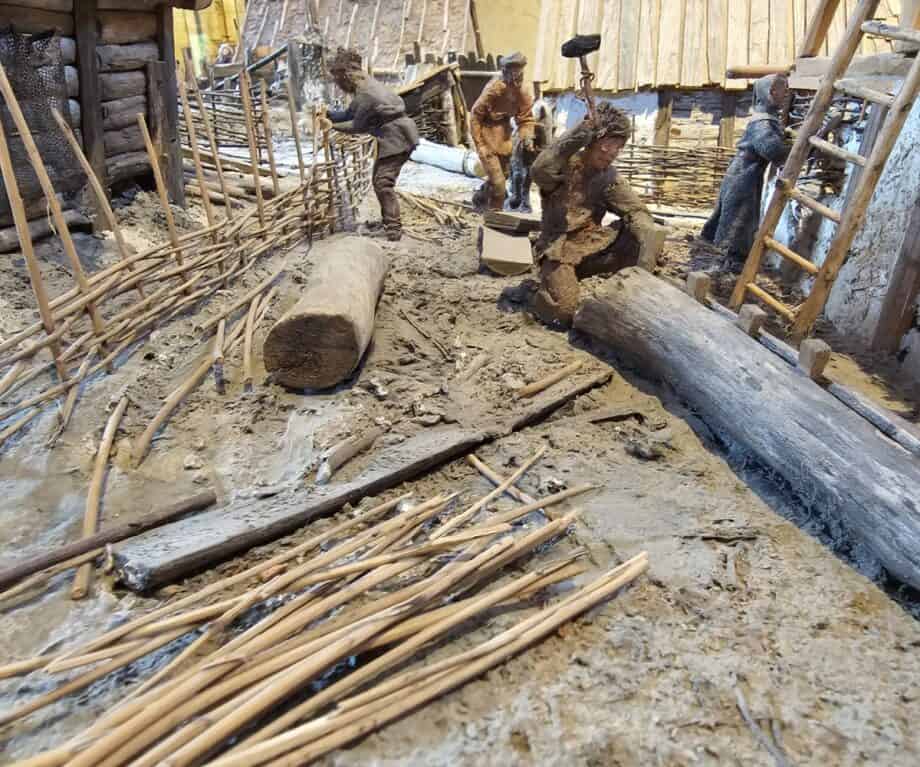The picturesque metropolis of Stockholm boasts a rich maritime heritage, stunning architecture, and an impressive array of museums and attractions. With so much going on, the city has something to offer every visitor. From the Viking powerhouse of Birka to the future cities exhibit in the National Museum of Science and Technology, here we suggest seven very different attractions that will give you an insight into Stockholm’s past, present and future.


Whatever you choose to see when you’re in the city, you might like to look into the Stockholm Go City pass as this will allow you to save up to 50% on Stockholm attractions.
Vasa Museum
One of Stockholm’s most iconic attractions, the Vasa Museum, is dedicated to the only preserved 17th century ship in the world, the Vasa. It is one of those places that will make your jaw drop from the moment you enter. The Vasa was built between 1626 and 1628 as a warship commissioned by King Gustavus Adolphus of Sweden.


It tragically sank on its maiden voyage in 1628, only to be rediscovered in the 1950s and raised from the seabed before being meticulously restored. Today it stands as a stunning testament to Sweden’s naval history and you can’t help but be captivated by the sheer size and ornate craftsmanship of the ship.


Exhibits tell you more about the ship’s construction, its tragic sinking, and the subsequent recovery process, while multimedia presentations help to bring the story of the Vasa to life. The museum also houses an impressive collection of artifacts recovered from the ship, providing further insight into life aboard the Vasa during the 17th century.


A visit to the Vasa Museum is not just about seeing a ship (incredible though it is!); it’s about understanding the cultural and historical context of maritime Sweden, making it an unmissable attraction for anyone visiting Stockholm.


The Royal Palace
It’s hard to know where to start with The Royal Palace as it is really multiple attractions in one: the Royal Guard (Högvakten), the Three Crowns Museum (Museum Tre Kronor), the Royal Apartments and Treasury (Representationsvåningarna och Skattkammaren), the Royal Armoury and Riddarholmen Church. The Royal Guard is responsible for protecting the Swedish royal family and is a significant part of Stockholm’s military preparedness. The changing of the guard takes place every day (except for certain holidays) at 12.15pm.


The Three Crowns Museum offers visitors a unique opportunity to explore the history of the original Tre Kronor Castle, which stood on the same site until it was destroyed by a devastating fire in 1697. On the other side of the Royal Palace, at the Royal Apartments and Treasury, you can learn about the lifestyle of the Swedish royal family, explore the palace’s northern wing where apartments showcase a collection of lavishly decorated rooms, and see the Council Chamber – a grand and historic room that has been used for centuries for important government meetings.


The Royal Armoury (not included in the Palace ticket) can be found deep inside the stone vaults of the Royal Palace and is one of the oldest museums in Sweden. Its collections of antiquities and other memorabilia trace the royal history of Sweden from the 16th century to the present day.


And finally, the 13th century Riddarholmen Church is the final resting place of many Swedish monarchs, including Charles XII, Gustav III and Karl Johan, as well as other notable figures, such as Jean Baptiste Bernadotte, who was adopted by Charles XIII and became King of Sweden.


City Hall
Completed in 1923, Stockholm’s City Hall, or Stadshuset, is an iconic building – a striking architectural masterpiece that stands as a symbol of the city itself. With its waterfront location and renowned, distinctive towers, it is not only an important administrative building but also a popular tourist attraction, drawing visitors from around the world.


Inside, City Hall features a variety of beautiful halls and rooms, and a guided tour of the Blue Hall, the Council Hall and the Golden Hall will give you insights into the role the building plays in the cultural life of Stockholm. The Blue Hall is famous for hosting the annual Nobel Prize banquet, where laureates celebrate their achievements. It is characterised by grand arches and elegant simplicity.


The Council Hall is where Stockholm City Council holds its meetings. It’s an important venue for local governance and decision-making, with a style influenced by Nordic Classicism; it is lit by large, tall windows and has beautiful wood-paneled walls and ceilings, with intricate carvings that reflect Swedish craftsmanship.


The tour finishes with a visit to the Golden Hall – designed by the architect Ragnar Östberg – which is adorned with stunning mosaics that depict Swedish history and mythology. Some 18 million mosaic tiles cover an area of around 1,500 square meters, with one of the most famous images being the Queen of Lake Mälaren. She sits on a throne that represents Stockholm and is surrounded by figures that symbolise other parts of the world, demonstrating its role as a global city and the connection between Sweden and the wider world.


Everything you need to plan your trip in 2024
National Museum of Science and Technology
The National Museum of Science and Technology, or Tekniska Museet, is a fascinating destination for anyone interested in scientific discovery. It is dedicated to showcasing the evolution of technology and its impact on society and has a wide range of interactive exhibits. Learn about historical inventions and the development of transport, communication and energy.


We really enjoyed the insights into future cities and learning more about the notion of the 15-minute city – an urban planning concept where daily necessities and services can all be easily reached in just 15 minutes. This would reduce car dependency, promote a healthier lifestyle and enable sustainable living, with the hope that it will improve the overall quality of life for city dwellers.


There are lots of hands-on displays and exhibits such as the facial recognition software which aims to detect age, gender and mood. Not entirely accurate but impressive nonetheless!


On the top floor of the museum, kids – and maybe some adults too – will love the old computer games and consoles, many of which you can play on. The collection has been acquired from a museum that was sadly forced to close. I even spotted the computer from my childhood – the once-popular Commodore 64!


Army Museum
For those intrigued by military history, the Army Museum (Armémuseum) in Stockholm is a must-visit attraction. Housed in a beautiful building dating back to the 18th century, the museum provides an in-depth look at Sweden’s military history from the Viking Age to the present day.


There’s a wealth of artifacts to view, including uniforms, weapons and equipment, that narrate the story of Sweden’s military involvement over the centuries.


Exhibits highlight significant events in Swedish military history and there are displays dedicated to various conflicts, such as the Great Northern War and World War II. Learn how these events have shaped the nation and delve into the lives of soldiers and the impact warfare has had on Swedish society.


On the ground floor of the museum, there is currently a moving and poignant exhibition called ‘Crossroads’ which looks at Sweden’s and Ukraine’s history through the last 1,000 years – a collaboration between the Swedish National Museums of Military History, the National Archives and the National Museum of the History of Ukraine in the Second World War. It starts with the Viking Age – and the marriage between Olof Skötkonung’s daughter Ingegerd and Yaroslav I (the Wise) of Kyiv – and takes you all the way through to the present conflict.


Haga Ocean Butterfly House
Nestled within Haga Park, a 10-minute drive north of Stockholm city centre, the Haga Ocean Butterfly House is like two attractions combined into one – a lush environment that is home to a stunning variety of butterflies and tropical plants, and a marine aquarium that is home to all manner of aquatic life, from coral to clownfish.


Designed to resemble a tropical rainforest, the Butterfly House is complete with waterfalls, exotic vegetation and, of course, countless butterflies. See these incredible specimens up close as they feed off fruit that has been put out for them and watch them fluttering around… they may even land on you as they did with us!


Watch where you walk – not only because the butterflies land on the ground, but also because there are small frogs hopping about freely. Marvel too at the chrysalis board where you’ll see hundreds of pupae and admire the metamorphosis process first-hand.


In addition to the butterfly exhibits, there’s a small aquarium where the highlight is a large tank with a few sharks and other fish. It’s not an extensive display like some other aquariums in Europe but would definitely be enjoyed by families with young children.


Birka: The Viking City
Take a scenic boat ride from Stockholm to Birka, located on the island of Björkö in Lake Mälaren. It is a UNESCO World Heritage site and one of Sweden’s most significant archaeological sites Often referred to as the first Stockholm or the first town in Sweden, it was was established during the Viking Age and became a thriving centre of European trade and culture.


A guided tour of Birka is a great way to learn more about the town’s historical significance, allowing you to imagine what life was like for the inhabitants of this bustling settlement. The surrounding landscape is also worth exploring and there are some fabulous views of the lake to be enjoyed from the Monument of Ansgar at the highest point on the island.


You can visit ancient burial mounds and the foundations of houses and workshops, as well as full-scale reconstructions of Viking-era buildings and boats, ancient Norse crops, and livestock, to gain a better insight into what life was like in this earliest of Swedish settlements.


The Birka Museum also provides valuable context for the site, showcasing artifacts recovered from the area, such as tools, jewelry, and weapons, which illustrate the craftsmanship and daily life of the Viking people. Why not stay the night after the majority of tourists have departed, enjoy a special glamping experience and have a deeper connection with the rich heritage of Sweden’s Viking past?


Disclosure: Our trip was kindly supported by Visit Stockholm.
Did you enjoy this article?
Receive similar content direct to your inbox.
Please enable JavaScript in your browser to submit the form







